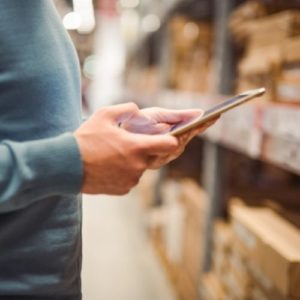On 1 January 2016, the 17 Sustainable Development Goals (SDGs) of the 2030 Agenda for Sustainable Development officially came into force. These goals apply to poor, rich, and middle-income countries alike, requesting them to mobilize concentrated forces over a span of fifteen years to end all forms of poverty, fight inequalities, and tackle climate change, while ensuring that no one is left behind.

Five years into following the SDG roadmap it was recognized that while some progress in specific areas had been made, overall, the world was significantly off track to fulfil the SDGs by 2030. In order to focus efforts and encourage even more ambitious action, the UN launched the Decade of Action in January of this year. It goes without saying that the world was significantly different back then, just before Covid-19 swept across the globe, threatening to undo the precarious progress that had been made.
The worldwide pandemic may have set us back even further from achieving the SDGs by 2030. It remains clear, however, that the SDG framework and the 2015 Paris climate agreement are the foundations on which a more resilient, inclusive, and sustainable recovery should be built.
The most impactful consequences of Covid-19 can be narrowed down to five key areas:
People in poverty
The pandemic is expected to push 71 million people back into extreme poverty by the end of this year. This would be the first increase in global poverty rates in more than two decades, meaning years of effort towards decreasing the number of people living on less than 1.90 USD a day would be lost. The world would thus enter the countdown to 2030 in a worse state than a year ago, facing the challenge of lifting more than 700 million people worldwide out of extreme poverty. In addition, the risk of getting sucked back into the cycle of poverty is significantly higher for vulnerable groups including workers in the informal economy (1.6 billion or half of the global workforce) and slum dwellers (1 in 7 people) in urban areas with insufficient access to secure housing, sanitation, and education.
Vulnerable groups
Women are bearing some of the greatest burdens during this pandemic. They represent more than 75% of doctors and nurses which puts them on the frontline in the fight against the virus. They also tend to face more job insecurity and put on average three times more time into unpaid care work than men. Cases of domestic violence (physical, sexual, and psychological) against women and children have increased by 30% in some countries during lockdowns. The pandemic has diverted resources away from other public health programs (reproductive health, vaccinations etc.) affecting women and children over proportionally. Furthermore, over 1.6 billion children are affected by school closures which is especially harmful for those with no access to technology, those who are forced to return to child labour, as well as the 370 million who depend on school meals for nutrition.
Heightened inequalities
The most vulnerable and marginalized groups are disproportionately affected by the virus which exposed and exacerbated existing injustices, such as inequal access to health care, social protection, and economic security for often discriminated groups like racial minorities or people with disabilities. The overarching goal of the SDGs is to “leave no one behind” but the pandemic reveals the tremendous need to address social, political, and structural discrimination.
Rising food insecurity
On top of climate shocks, conflict, and the locust crisis of this spring, Covid-19 is an additional threat to food security. By the end of this year 270 million people – more than double the number of 2019 – could face acute food insecurity, meaning their lives would be in danger from lack of food. The fight to end hunger has been hard and improvements unsteady (after year of steady decline, global hunger has been on the rise again since 2015). With millions of people being pushed into poverty over job losses and crucial supply chains and production being interrupted, Covid-19 further increases the number of people requiring food assistance, especially in regions like Latin America.
Difficult path to a safe climate
The pandemic with its consequences for human and economic activity has translated into short-term environmental improvements (cleaner air and water, emission reductions for transport and production). By the end of 2020, a 6% decline in global greenhouse gas emissions is projected, compared to an average annual increase of 1.5% over the past decade. Yet even this significant reversal is not enough to keep global warming below 1.5 C: Emissions would have to fall by 7.6% yearly starting 2020 to achieve the commitments in the Paris Agreement. That requires drastically new approaches as the global economy recovers, seeing that climate change is even occurring faster and with more extreme effects than expected.
Unless the global recovery from the Covid-19 pandemic is aligned with the SDGs on all levels from local to global, we are not only in danger of undoing the valuable and hard-earned progress made over the last decades but also of not honoring the commitment of leaving no one behind. Now is the time to make crucial choices that put the world back on track to deliver the SDGs and build back sustainable, inclusive, and equitable societies and economies.
The Sustainable Development Goals Report 2020, released in July 2020, highlights the progress that has been made and areas that must be secured to have any chance of achieving the SDGs by 2030. It also analyses the impact and challenges posed by COVID-19, including the need for action to avoid lost progress.
[cmsms_divider type=”solid” margin_top=”50″ margin_bottom=”50″ animation_delay=”0″]

Carolin Hussein
Carolin started her career at a grassroots NGO in Cairo working on various projects ranging from economic development and community empowerment to health and social inclusion.
Since coming to the UAE in 2009, Carolin has balanced working at the country’s biggest German-speaking publication and completing her Master’s degree in Sustainable Development Cooperation.
Carolin’s goal is to make a difference for the public. For her that means working on a few key issues, with an emphasis on social and environmental projects that can foster new ideas, establish cross-sectoral partnerships, and achieve tangible results that serve the public interest.
Carolin joined Goumbook in 2020.



